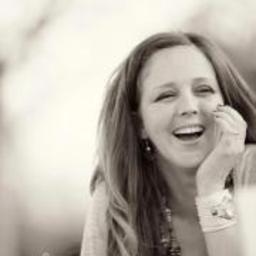From The Austin American Statesman, Saturday, April 4, 2009
Faith & Beliefs
In Your Words / Susana Fletcher
Separate the biblical roots of Easter from the bunny and baskets
When bluebonnets sprout every year and little girls wear pastel-colored frocks, I should be smiling all the way to church. Why, then, do I feel so depressed? It's because I feel burdened about the one word on every Christian's lips -- Easter.
My quest for biblical truth and historical knowledge smacked the ignorant Easter bliss right off my face. I'm the church party-pooper, because I've uncovered the truth: Easter was never intended to be about God nor Jesus rising from the dead. It is the pagan celebration of rebirth, the setting for worshipping the earth and goddesses of fertility. When you say the word “Easter”, you are invoking the goddesses Ishtar, Ashtoreth, Astarte, Eostre, Isis, and all whose names have been called upon by barren and expecting mothers, by lust-filled men, and by priestesses promising fertility. It's a lot to put in your basket, but the truth is easily found by a simple Internet search.
So what is holy? When poured through the biblical sieve, and Easter baskets, eggs, and all things pagan filter out, here's what remains of our Christian holiday: the Last Supper, Crucifixion, Resurrection. What do we call it? Actually, it already has a name -- Passover.
According to Exodus, the blood of the sacrificed lamb saved the Israelites from the angel of death, and they were set free from slavery in Egypt. I know what you're thinking. It's a Jewish holiday. Yes, the Jewish people honor their deliverance from slavery through Passover celebrations. But Christians -- yes, Christians -- celebrated Passover for nearly 300 years, from the time of the Last Supper (a Passover meal), until the time of Constantine. Suddenly the New Testament, 1 Corinthians 5:7-8, makes more sense. “For Christ, our Passover lamb, has been sacrificed. Therefore let us keep the Feast.”
Taking Jesus’ sacrifice and resurrection away from Passover is a disservice to the Scripture. The exodus from Egypt was a foreshadowing of the deliverance to come. The gospel of Mark, chapters 14 and 15, shows us that everything in the "Holy Week" actually occurs during "Passover Week." Jesus says in the upper room, "I have eagerly desired to eat this Passover with you before I suffer." He was giving them a sign. Jesus, having been one with God for eternity, was waiting for the appointed Passover to shed His perfect blood so that all could avoid the angel of death.
Enter Constantine the Great, who, among other things, sought to conquer and unify the world under his sword of Christianity. Desiring to appease the pagan and religious demographics, he separated the celebration of the Resurrection from Passover and linked it instead to the vernal equinox and pagan celebrations of Easter. As recorded by Eusebius, an attending member of the Council of Nicaea in 325AD, Constantine clearly stated his motive: “It was declared to be particularly unworthy for this, the holiest of all festivals, to follow the custom of the Jews, who had soiled their hands with the most fearful of crimes, and whose minds were blinded…Consequently, in unanimously adopting this mode, we desire, dearest brethren, to separate ourselves from the detestable company of the Jews.” Thus Constantine derailed the biblical course of the faith.
Passover is the celebration of a sacrifice that set a people free. It was set into motion in Egypt, remembered through the ages, and proclaimed anew by Jesus the Messiah. On the night he was betrayed, He took the elements of Passover, lifted them up, and spoke the words, “Whenever you do this, do it in remembrance of me.” The celebration of Easter, on the other hand, is irrelevant to the Christian faith, even in it's most benign state. What has a bunny to do with the cross? But considering its pagan and polytheistic origins, should one even use the word “Easter”? Exodus 23:13 says no. “Do not invoke the names of other gods; do not let them be heard on your lips.”
This spring, I will pick out pink dresses for my girls, and force my camo-wearing boy into slacks and a collared shirt for the Passover Seder. Although I part ways from the Christian mainstream, I cling to the ancients. I see countless covered heads, spread throughout time, uttering the words that I speak today. The same words that Jesus spoke to His disciples in the upper room. I feel connected to the Scripture and my savior, the Sacrificed Lamb, in real and undeniable terms. And every year I do it in remembrance of Him.
Susana Fletcher, a former teacher and University of Texas graduate, is a mother of three and occasion writer who continues to look for the biblical meaning of authentic Christianity.
I decided to post this article this year because The Statesman has let it drop out of the searchable archives. I reference this entry every year, and needed a place to put it. :)

.JPG)
.JPG)



